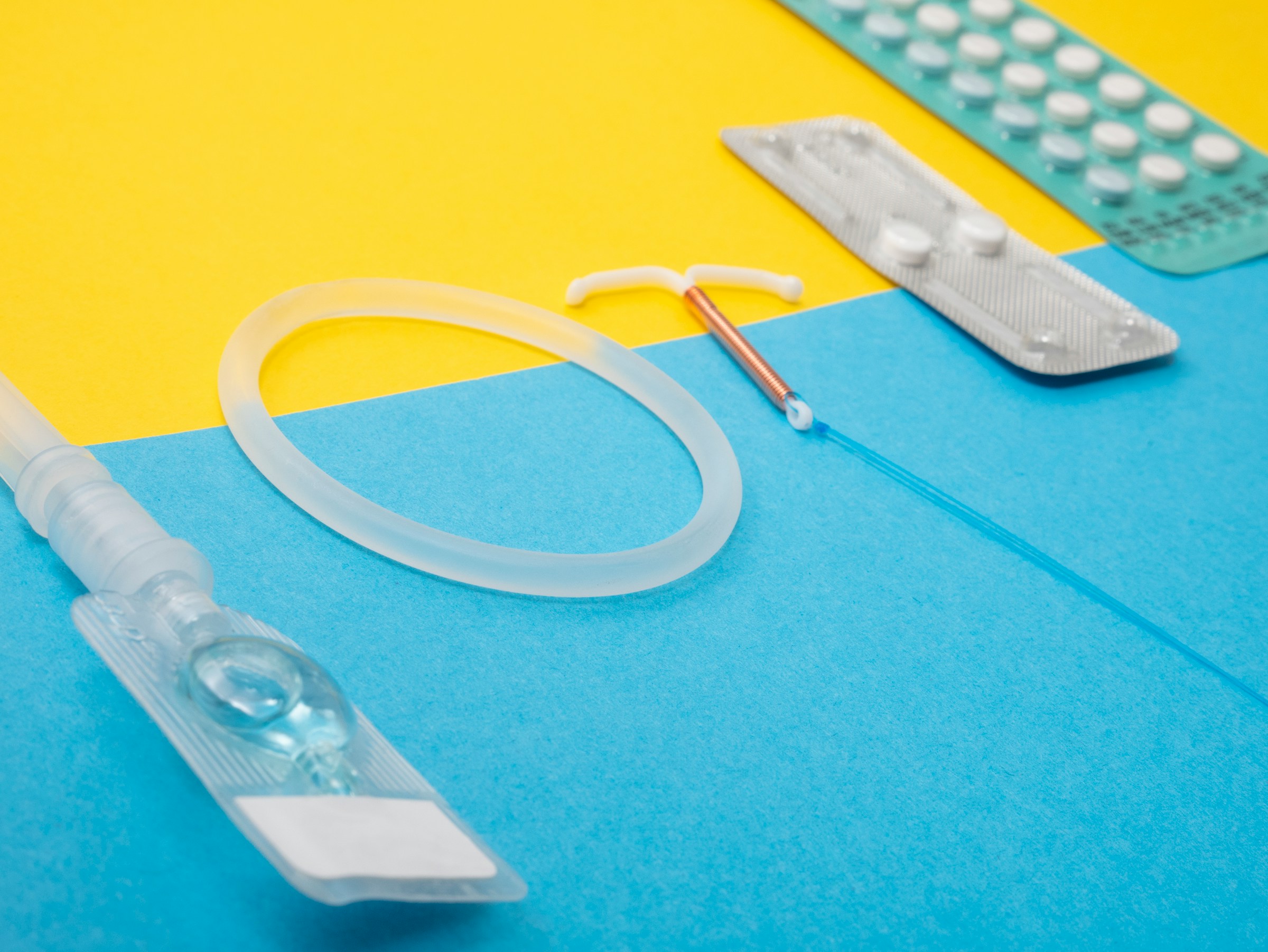Seasonal allergies are here, and more people are feeling the effects than ever before. As pollen is beginning to be released and you feel that familiar itch in your nose, skin, or eyes, try not to cry – there is a solution to this problem! You want to enjoy the nice weather but if you step outside you sneeze like someone just threw pepper in your nose. What should you do?
What Causes Seasonal Allergies?
Typically, it is some type of pollen, dust, or other airborne particle that your body overreacts to. This overreaction is often due to one of 3 issues:
- Adrenal gland fatigue
- Immune system imbalance
- Gastrointestinal issues
Each of these issues also impact the other 2 directly or indirectly.
Adrenal Gland Fatigue and Seasonal Allergies
The adrenal glands control your response to every stressor your body receives. In the case of allergens this is usually done through the balance of histamine and stress hormones (cortisol, norepinephrine, and epinephrine). Histamine is released by various cells in the body in response to allergens, tissue damage, and other inflammatory reactions. Stress hormones, released by the adrenal glands, are anti-inflammatory and counteract the effects of histamine. Think about what you give someone if they are having anaphylactic shock, like a peanut allergy or bee sting. An EPIPEN! The Epi- stands for epinephrine. Even many asthma medications are different types of steroid hormones or create the same response as stress hormones.
Signs of adrenal fatigue
- Sensitivity to bright lights
- Sensitivity to noises
- Feeling dizzy after standing up quickly
- Anxiety
- Allergies
- Fatigue
- Low libido (sex drive)
- Poor blood sugar regulation (Hangry or other symptoms without food)
So what do you do about adrenal gland fatigue?
- Lower your mental and emotional stress (journal, meditation, counseling, etc.)
- Lower your physical stressors (less anerobic/high intensity exercise, heal chronic injuries)
- Lower your chemical stress (avoid seed oils, artificial sweeteners and colors, alcohol, etc.)
When in constant stress or pain your adrenal glands will initially release cortisol or adrenaline (epinephrine and norepinephrine). At first you will have blood sugar handling issues, poor concentration, and poor sleep. If the stress continues eventually the cortisol and adrenaline stops. This leads to allergies as the cortisol: histamine ratio leans further in favor of histamine. If too much histamine is being released one culprit to look at is the immune system balance.
The Immune System and Seasonal Allergies
The immune system, in general, is a balance between T-helper 1 (Th1) and T-helper 2 (Th2) cells. Yes, there are many other T helper cells such as Th17 for autoimmune conditions that can occur due to allergic reactions, but to keep it simple I will discuss Th1 and Th2.
Th1 cells are released in response to infections (virus, bacteria, fungus, and some parasites). Th2 cells are released in response to some parasite infections, heavy metal toxicity, vaccines, cortisol, and other substances (bad fats, medications, etc.). T regulatory cells (Treg) are the regulator between Th1 and Th2. Treg calms down your immune response once the infection or foreign substance is delt with.
It is all about balance between these two immune responses. Since most people have a high amount of stress, we tend to lean towards the Th2 side more than Th1 meaning we will be less effective at dealing with infections and over-reactive when exposed to allergens. Supporting the Treg cells with nutrients such as vitamin A, D, fish oils, superoxide dismutase (SOD), or glutathione can be great to make sure your immune system is being regulated correctly.
There are too many natural antihistamines and natural anti-inflammatories to name all of them here, but here is a list of some of the most common I use in my office to help patients with allergies:
- Trimethylglycine (found in beets)
- Quercetin
- Resveratrol
- Whole complex vitamin C – not ascorbic acid!
It is important to note that while these antihistamines are great you need to work to remove the cause of your high histamine levels whenever possible. This could be an underlying infection, food allergy, an old injury that never healed quite right, or something off with your gut.
Gut Health and Seasonal Allergies
The gut is highly associated with the immune system. There are specialized immune cells known as “gut associated lymphatic tissue” or GALT for short. These lymphatic cells are said to make up 70% of the immune system by weight. It acts as one of the first lines of defense against pathogens in our food and other substances requiring an immune response. All that to say you can’t separate the gut and your immune system.
What can you do to make sure your gut is working with your immune system? I’m glad you asked. One of the most important steps is make sure you have enough stomach acid to kill off the majority of the microbes that try to hitch a ride on your food. Human stomach acid should be around 1.5-2 pH. This is around the pH of lemon juice and matches the pH of scavengers’ stomachs. Without adequate stomach acid we also absorb less protein, calcium, B12, fats, and fat-soluble vitamins.
Symptoms of low stomach acid include:
- GERD, heartburn, or acid reflux
- Itchy skin
- Hives
- Bursitis
- Widespread joint pain
- Indigestion
- Halitosis (bad breath)
Hopefully it is becoming clearer that if you aren’t sanitizing your food in your stomach this will force your body to have a stronger immune response to keep you alive, leading to a higher level of histamine release. Your body isn’t making a mistake, it is trying to ensure you make it to tomorrow.
Past the stomach is the small intestine which should have very little bacteria in it, but if digestion is slowed, excess sugars are eaten, or antibiotics are taken then bacteria will have the chance to grow in the small intestine. I am not saying that every time someone takes an antibiotic that they will need to deal with a bacterial or fungal overgrowth in their gut, but there is also a reason many antibiotics are now given with probiotics.
The appendix lives just past when the small intestine turns into the large intestine. Think of the appendix as a little alcove of “good bacteria”. When we are sick or the gut microbiome is less than ideal, the appendix is used to help replenish the good bacteria. This is why minor GI disturbances don’t always turn into chronic issues. If the minor issue persists long term, however, the appendix can’t always keep up. This can create a situation where bad bacteria are allowed to overtake the good bacteria in the large intestine.
Overgrowth of bacteria, fungus, or even a parasite (although parasites aren’t as common as many would have you believe) creates more inflammation in the gut. Often this is the cause of leaky gut. Undigested food is allowed in your blood stream and therefore the immune system must respond. This increases inflammation and histamine causing more allergies.
Natural Allergy Relief
To wrap everything up in a nice hypoallergenic bow, I want to make sure you also understand that any stressors to the gut or immune system is also going to add more stress to the adrenal glands. Typically, I see that addressing the gut or immune system allows the adrenal glands to function better, but don’t underestimate what a good relaxing day can do for you.
Eating local honey can help you get acclimated to the pollen in your area.
Don’t try to be perfect (it’ll usually just add more stress), just pick one area of your health to improve at a time and you will be surprised at how much better you feel!
I hope this helps you get rid of your allergies for good. If you have any questions, feel free to reach out and I will be happy to help!















Leave a Reply
You must be logged in to post a comment.